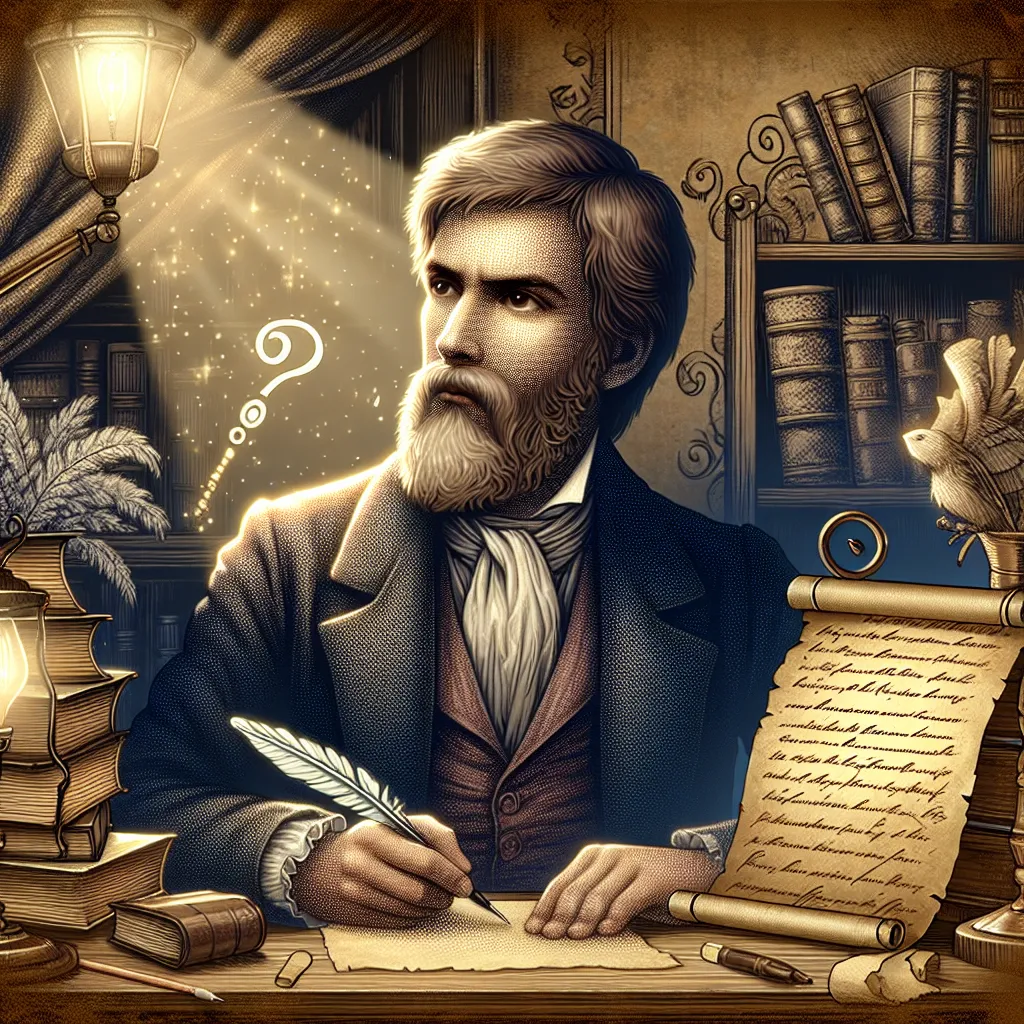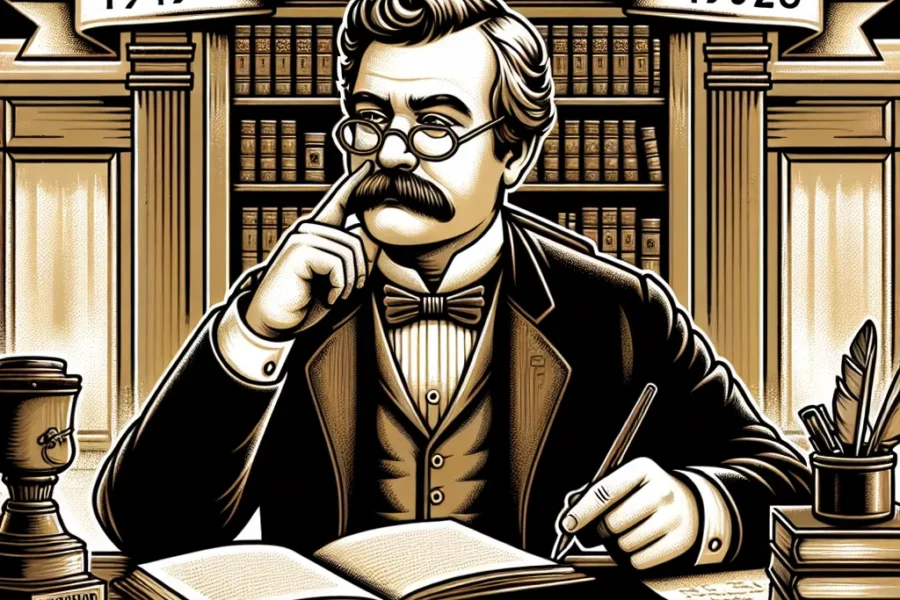Chester A. Arthur’s IQ Score: A Deep Dive into the Intellectual Capacity of America’s 21st President
Understanding the intellect of past presidents can offer fascinating insights into how their cognitive abilities might have influenced their decision-making processes, policies, and leadership styles. Chester A. Arthur, the 21st President of the United States, often sparks curiosity among historians and laypeople alike. Born on October 5, 1829, Arthur’s tenure as president remains a subject of intrigue. But what was Chester A. Arthur’s IQ score, and how did his intellectual prowess shape his legacy?
If you are looking for legitimate IQ Tests which pass the entry bar for Mensa, see our IQ Tests.
Before diving into conjectures about Arthur’s IQ score, it is essential to consider the broader context. Unlike contemporary figures who may have undergone standardized IQ testing, historical figures like Chester A. Arthur did not. Therefore, any assessment of his IQ is purely speculative. This article aims to provide a comprehensive view of Arthur’s educational background, career, and character to offer a nuanced perspective on his intellectual capabilities.
Early Life and Education: The Foundation of Intellectual Development
Chester Alan Arthur was born in Fairfield, Vermont, to William Arthur and Malvina Stone Arthur. His father was a preacher and teacher, while his mother was devoted to raising their large family. Arthur showed promise early on, excelling in his studies. He attended Union College in Schenectady, New York, where he was an exceptional student and a member of the Psi Upsilon fraternity. He graduated in 1848 with honors, earning a degree in the classics.
At Union College, Arthur was known for his quick wit, keen intellect, and eloquence. He could converse in Latin and Greek, a testament to his strong academic foundation. Beyond his linguistic prowess, he was also noted for his analytical and problem-solving skills. These attributes certainly suggest a high degree of intelligence, although quantifying it in modern terms remains elusive.
Legal Career: A Reflection of Analytical Skills and Intellect
After graduation, Arthur pursued a career in law, which further underscored his intellectual capabilities. He studied law under Erastus D. Culver in New York City and was admitted to the bar in 1854. His early legal career included fighting for civil rights; he notably successfully represented Lizzie Jennings, an African American woman who was forcibly removed from a streetcar, winning her case and paving the way for desegregation of New York City streetcars.
This victory showcased Arthur’s commitment to justice and his ability to craft compelling legal arguments, hallmarks of a sharp mind. His career continued to flourish as he worked his way up the legal ladder, eventually serving as the Quartermaster General of the New York Militia during the Civil War. This role required significant organizational skills, strategic thinking, and logistical acumen, further evidence of his high level of intelligence.
Political Career: Strategic Acumen and Leadership
Arthur’s transition from law to politics provides additional layers to understanding his intellectual capabilities. He became actively involved in the Republican Party and was appointed the Collector of the Port of New York by President Ulysses S. Grant in 1871. This position was incredibly influential, overseeing a large number of lucrative federal positions and responsibilities. Arthur’s tenure here was marked by efficiency and fairness, earning him respect and a reputation for competence.
However, his political ascent was not without controversy. The Port of New York was rife with corruption, yet Arthur managed to navigate its complexities skillfully. Although he initially opposed civil service reform, his views evolved over time. When he ascended to the presidency following the assassination of James A. Garfield in 1881, Arthur surprised many by advocating for and signing the Pendleton Civil Service Reform Act into law in 1883. This act was pivotal in curbing patronage and laying the groundwork for a professional civil service.
This shift in perspective and policy highlights Arthur’s adaptability, strategic thinking, and open-mindedness—qualities indicative of a nimble intellect capable of growth and reform.
Presidency: Challenges and Decisions
Arthur’s presidency, although not as well-known as some of his predecessors or successors, was marked by significant challenges and decisions that required considerable intellectual rigor. From managing foreign affairs and modernizing the Navy to dealing with immigration issues and tariff reforms, Arthur demonstrated a balanced and thoughtful approach to governance.
His diaries and personal correspondences reveal a man deeply engaged with the issues of his time, often wrestling with complex problems and seeking counsel from a range of advisors. While his presidency may not have been revolutionary, it was characterized by competent and effective management, qualities that often suggest a sound intellect.
Personal Characteristics: The Measure of a Man
Beyond his professional achievements, Arthur’s personal characteristics provide further insight into his intellectual capacity. Known for his sartorial elegance and courteous demeanor, Arthur was also a voracious reader and a learned man. He had a keen interest in history, law, and literature, often engaging in intellectual pursuits that enriched his understanding of the world.
His contemporaries described him as a man of refinement and culture, possessing a breadth of knowledge and a depth of understanding that went beyond the average. These qualities, combined with his stellar academic record and professional accomplishments, paint a picture of a man with a considerably high IQ, even if we cannot assign a specific number to it.
Speculative IQ Estimates: A Methodological Perspective
Given the absence of standardized IQ tests during Arthur’s time, any attempt to estimate his IQ score is inherently speculative. Modern historians and psychometricians often employ a range of methods to infer the IQ scores of historical figures, primarily through the analysis of their writings, speeches, accomplishments, and contemporary accounts of their cognitive abilities.
Arthur’s robust academic background, successful legal career, strategic political maneuvers, and effective presidency all point to a high level of intellectual competence. Some estimates place his IQ in the range of 130 to 140, indicating superior intelligence. However, these numbers should be taken with a grain of caution, as they are conjectural and based on the indirect evidence of his life and work.
Conclusion: The Legacy of Chester A. Arthur’s Intellect
Chester A. Arthur remains a fascinating figure in American history, not just for his political achievements but also for the intellectual depth he brought to his roles. While we may never know his exact IQ score, the evidence suggests that he possessed a sharp, thoughtful, and capable mind. His journey from a promising student to a respected lawyer, and ultimately to the presidency, reflects an individual of considerable intelligence and adaptability.
Arthur’s commitment to civil service reform, his successful navigation of complex political landscapes, and his personal characteristics all contribute to the image of a man who was both intelligent and effective. While the exact measure of his IQ may elude us, his legacy as a leader of intellect and integrity is indisputable.



Leave a Comment